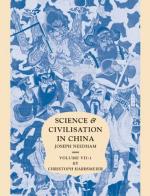|
This section contains 10,896 words (approx. 37 pages at 300 words per page) |

|
In logic, as in other fields, whenever there have been spectacular changes and advances, the logic that was current in the preceding period has been described as "old" or "traditional," and that embodying the new material has been called "new" or "modern." The Stoics described themselves as "moderns" and the Aristotelians as devotees of the "old" logic, in the later Middle Ages the more adventurous writers were called moderni, and since the latter part of the nineteenth century the immensely expanded logic that has developed along more or less mathematical lines ("mathematical logic," "symbolic logic," "logistics") has been contrasted with the "traditional" logic inherited from the sixteenth and seventeenth centuries. In every case the logic termed "old" or "traditional" has been essentially Aristotelian, but with a certain concentration on the central portion of the Aristotelian corpus, the theory of categorical syllogism—the logic of Aristotle himself...
|
This section contains 10,896 words (approx. 37 pages at 300 words per page) |

|


